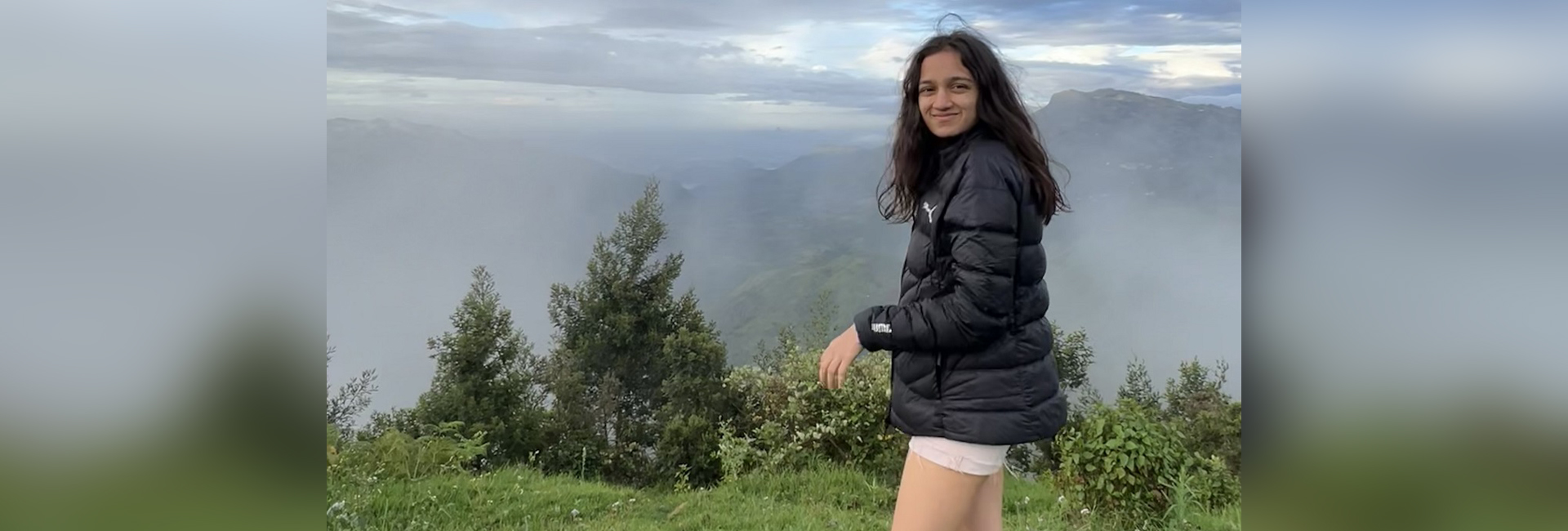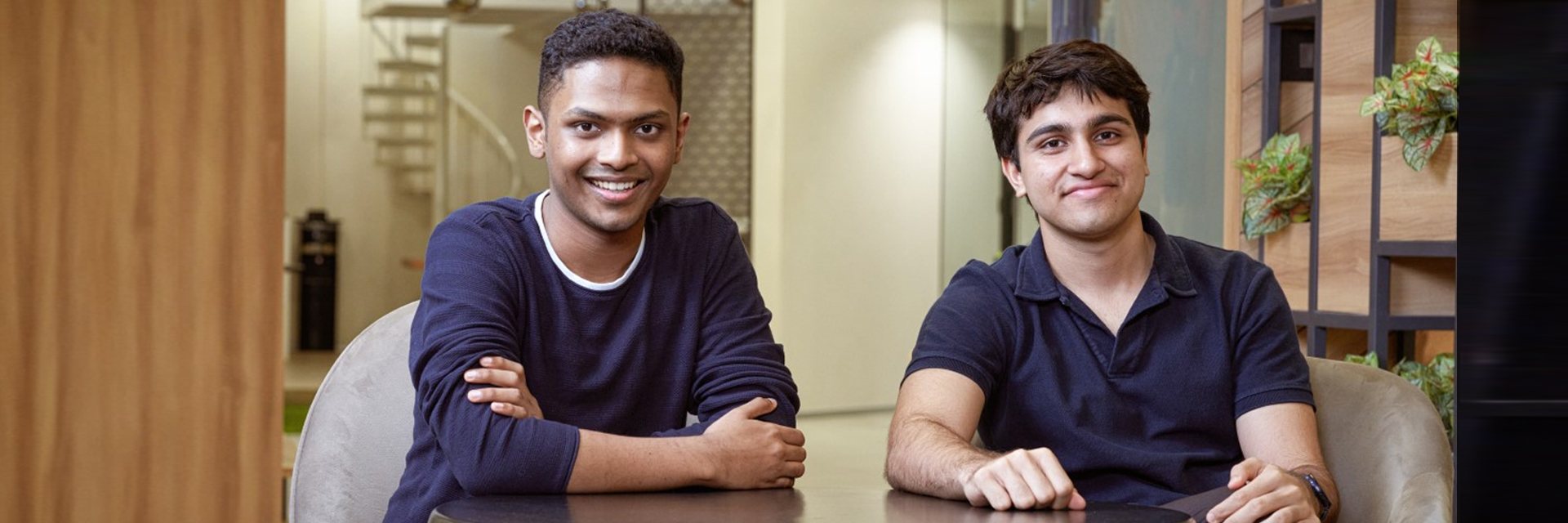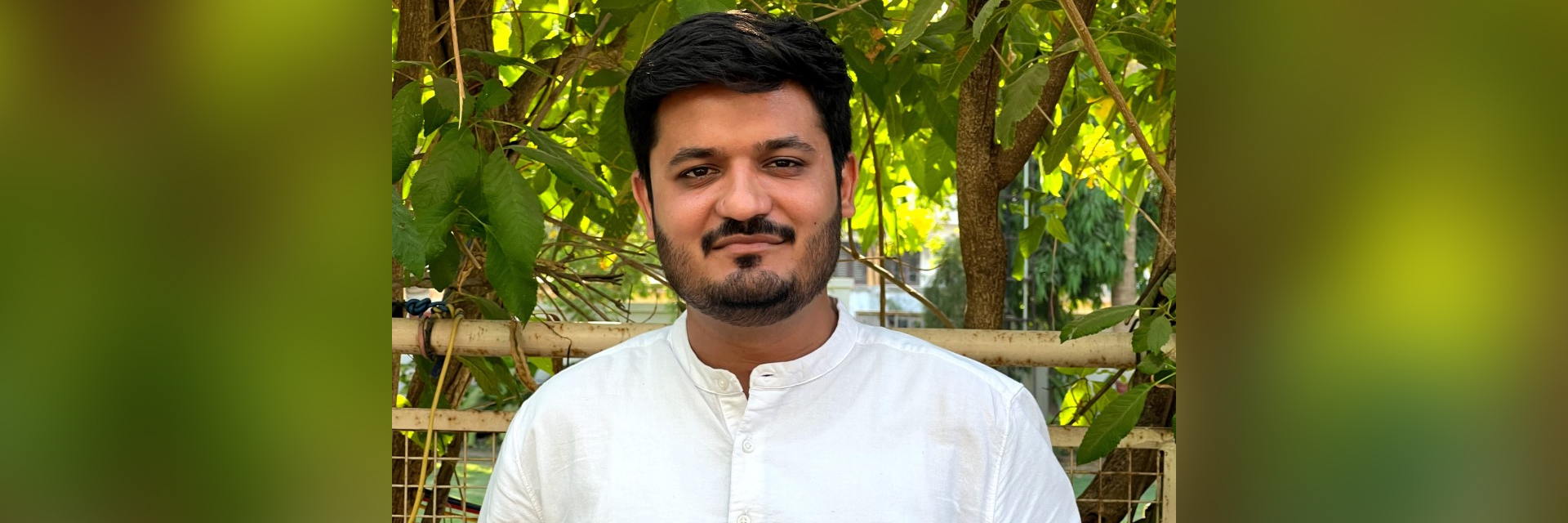(July 12, 2022) Sanchi Taleda was “beyond thrilled” and also, “a little confused,” when she heard the news that her NFT was to be displayed in the Metaverse. Just like that, the 22-year-old artist found her name in lights, with her work, Quarter Past Midnight, splashed across a Times Square billboard on June 19, the opening night of NFT.NYC. She’s one of 79 artists (and one of the youngest of the lot) from around the world to have their work showcased on the first night of the week-long event.

Quarter Past Midnight, by Sanchi Taleda. Photo credit: Instagram
A dose of (augmented) reality
For one week, the young NFT artist was given access to cryptovoxels.com, one of the largest and most popular metaverse spaces. “It was very intimidating,” she tells Global Indian. “I was one of the youngest artists among a group of people who had massive fan bases. I was wondering how I fit in there, to be honest, but it was an amazing experience.” After the billboard display, her work was showcased at a virtual gallery, at an exhibition titled ‘Figureglyphs’, which dealt with artistic interpretations of the human body. “It was an augmented reality setup, where people could walk (physically) through Times Square and use their phones to enter virtual galleries in the Metaverse.”
Where it began
It all began with a Discord group, where “they had put out a search for artists,” she recalls. The young NFT artist had just begun sharing her work on Opensea, when she stumbled upon a call for artists put out by SearchLight.Art. To her, the chances of being accepted seemed so remote that Sanchi, acting almost on a whim, sent out a piece of work she had already completed. “Here I was, trying to understand how NFTs work and suddenly, I’m part of a gallery in the Metaverse and being told my art would be on a billboard in Times Square.”
Back in 2020, Sanchi, who will graduate soon from the Measi Academy of Architecture, was given an iPad to help her with college assignments. “Instead, I got into digital illustrations,” she says. “It was just fun for me, a break from college.” She began researching NFTs and wondered if she could enter the space herself. She pleaded with her brother to get her a crypto wallet – “He did, but only after I had done my research,” she laughs.
Seeking magic in the mundane
“Where do I find inspiration? It happens when I go walking through the streets, that inspires me the most,” Sanchi says. An experienced swimmer, Sanchi walks to the pool every day, soaking in the countless, poignant vignettes that make up everyday life on the bustling streets of an Indian city. “One day, for instance, I saw a man yawning to himself and scratching his head. It was such a busy road but he was lost in his own world. It made me wonder what his life is like, what he has been through.”
The ideas take seed, she says, when she’s actually in the pool, swimming. “That’s my time to take stock of what I have seen, to understand what has inspired me.” Her art itself, however, is unplanned – she begins with an idea and let it take form. “I don’t always know what it will turn out to be,” Sanchi remarks. It’s an advantage, she agrees, to being a digital artist working with a tool like ProCreate. Here, she has greater room for spontaneity, vastly different to conventional art where usually, everything is planned to the last detail before it makes it to the physical canvas. “I simply allow myself to draw and as I do, find different ways to build on it.”
Unassuming and even a little reticent – Sanchi is not given to words, preferring to let her art speak for her. And it does. Her digital artwork, all done at home on her iPad, is reminiscent (although she doesn’t intend it to be), of the Surrealists. She simply smiles at the reference – she’s familiar with their work Sanchi does not borrow, her work as an artist is deeply introspective, taken from everyday scenes in the streets of Chennai, where she is based. “I want people to look at my work and go, ‘but what is she thinking’? Everyone who looks at my art should interpret it differently.” The NFT artist mentions digital creators like David Shrigley, who has a huge following on Instagram. Although their work is nothing alike, “he makes you think and that’s what I want to do as an artist.”
Breaking the norms of architecture – and art
Now in her final year at Measi, Sanchi has created for herself a way to think in abstract terms, producing work that is very removed from the conventional approach. Her friends, she says, became used to her huddling in a corner and scribbling away – “They all know I’m a little different,” she smiles. “I would spend my days scribbling my own drawings instead of actually listening in class.” She shied away from “the usual rectangles, squares and boxy designs,” preferring to work with shapes like triangles. “My professor would ask me, ‘How do you even think this way’? It took some convincing but, in the end, he told me that he likes my designs the best.” At home, however, there is no need for convincing – her father, she says, is her biggest fan. “He even comes up with names for my work.”
Sanchi, who is even toying with the idea of being an architect in the Metaverse, where she can give her abstract thinking full rein, intends to do her master’s degree in the UK. It’s the only place “which offers courses that bridge art and architecture. I want to be at that intersection.”
- Follow Sanchi on Instagram, Twitter and check out her work on Opensea.io





